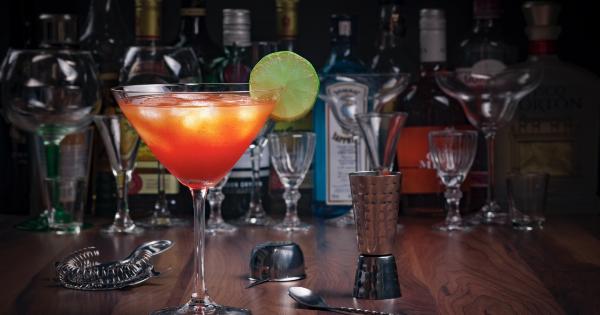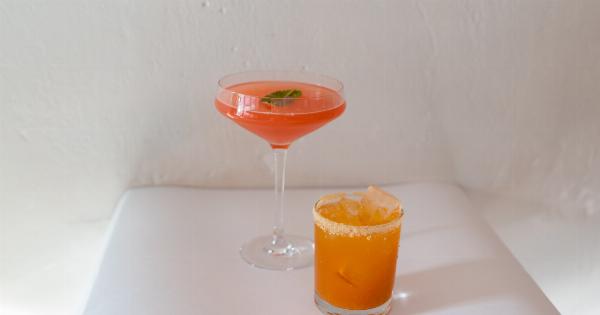Alcohol has been a part of human culture for thousands of years. It has been used for celebrations, social gatherings, and even religious rituals.
However, there is one particular boozy beverage that has gained a notorious reputation for making people regret their decisions. That beverage is none other than the infamous absinthe.
The history of absinthe
Absinthe, also known as the “Green Fairy,” is a highly alcoholic distilled spirit that is made from botanicals like wormwood, anise, and fennel.
It originated in Switzerland in the late 18th century and quickly gained popularity in France, particularly among artists, writers, and bohemian circles.
The allure of absinthe
What made absinthe so appealing to its followers was not just its high alcohol content, but also its unique green color and mysterious reputation. Absinthe was often associated with creativity, inspiration, and even hallucinations.
One of the key ingredients in absinthe is wormwood, which contains a compound called thujone. Thujone was believed to have psychoactive properties and was responsible for the purported hallucinogenic effects of absinthe.
However, modern scientific research has debunked these claims, showing that the levels of thujone in absinthe are too low to have any significant impact on the drinker’s mind.
The ban and the comeback
Despite the lack of scientific evidence to support its alleged dangers, absinthe was banned in many countries in the early 20th century. The ban was largely fueled by fears and moral panic surrounding the supposed harmful effects of the drink.
Absinthe was blamed for everything from madness to murder.
It wasn’t until the late 20th century that absinthe started making a comeback. The ban was lifted in many countries, and the production and consumption of absinthe became legal once again.
However, strict regulations were put in place to ensure that the levels of thujone in absinthe remained within safe limits.
The dark side of absinthe
While absinthe may not actually cause hallucinations or madness, it is still a potent alcoholic beverage that should be consumed in moderation.
Like any other alcoholic drink, excessive consumption of absinthe can lead to a range of negative effects and consequences.
The high alcohol content of absinthe can result in intoxication, impaired judgement, and increased risk-taking behavior. This can lead to regrettable decisions and actions that one might not make while sober.
Absinthe, like any other alcoholic beverage, can also contribute to alcohol addiction and dependence if consumed excessively and regularly.
Responsible consumption
It is important to remember that enjoying absinthe or any other alcoholic beverage should be done responsibly. Here are some tips for responsible consumption:.
- Drink in moderation: Limit your absinthe intake to a reasonable amount and avoid excessive drinking.
- Know your limits: Understand your tolerance for alcohol and know when to stop drinking.
- Stay hydrated: Drink plenty of water alongside your absinthe to stay hydrated and pace yourself.
- Don’t drink and drive: Never drive under the influence of absinthe or any other alcoholic beverage.
- Seek help if needed: If you feel that you or someone you know is struggling with alcohol addiction, seek professional help and support.
In conclusion
Absinthe, the once-banned and enigmatic drink, may not possess the mystical powers it was once attributed with. However, it is still a potent alcoholic beverage with the potential to cause regret if not consumed responsibly.
By understanding its history, effects, and practicing moderation, one can enjoy absinthe without making decisions they’ll later regret.



























